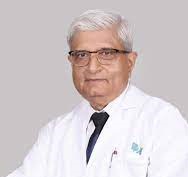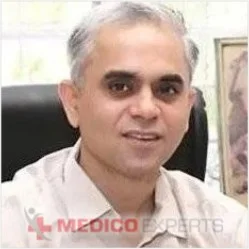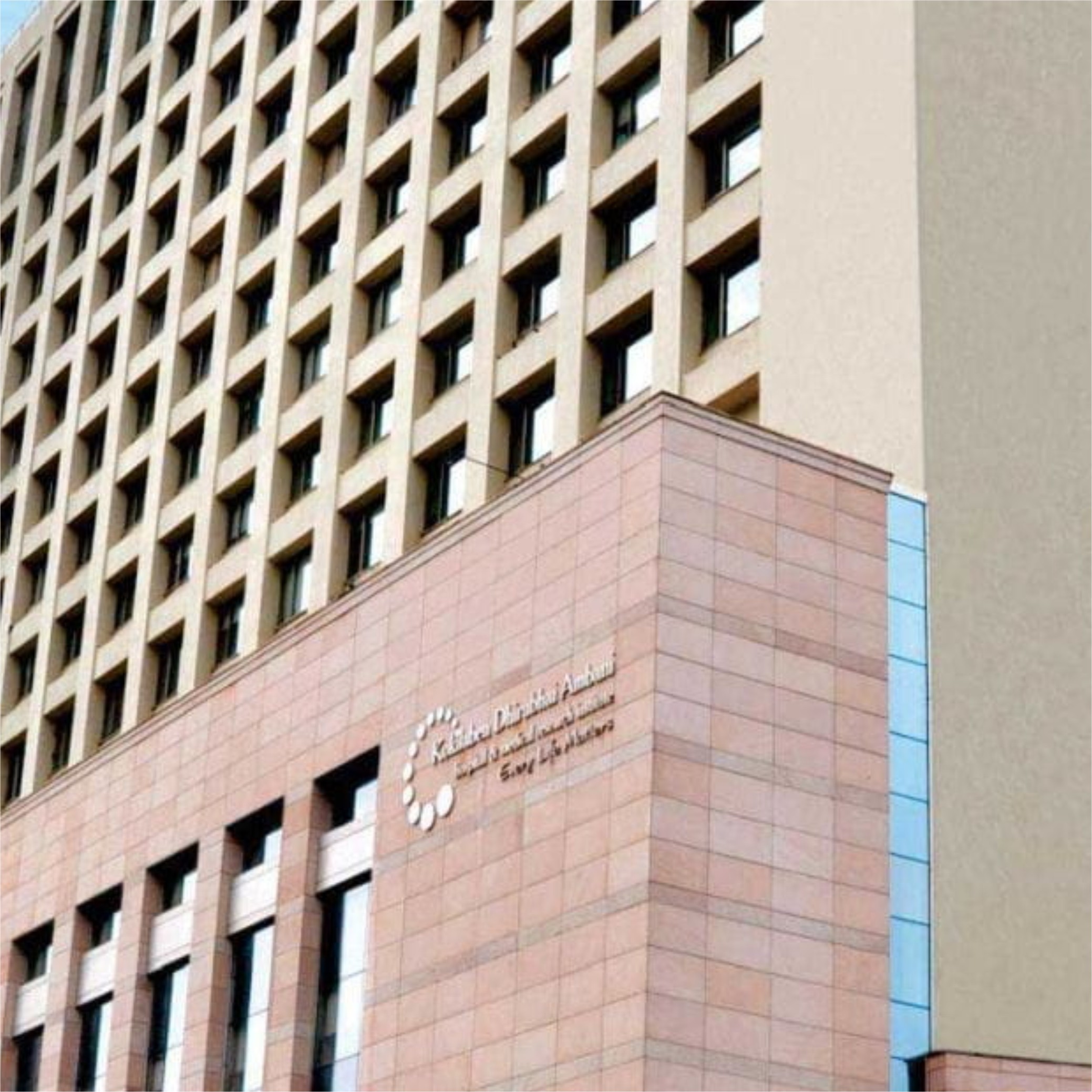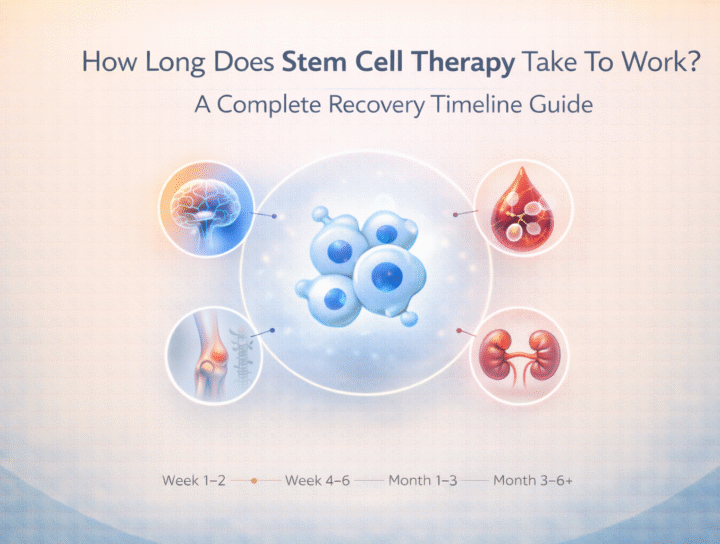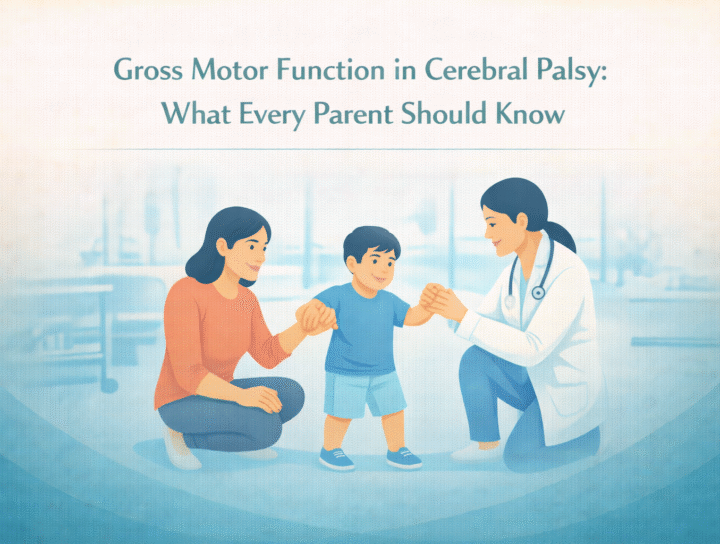Cochlear Implant Surgery in India: Treatment for Hearing Loss
Do you know that over 1.5 billion people, or almost 20%of the global population, are dealing with hearing loss currently?
430 million of them have disabling hearing loss.
The impact of hearing loss is enormous in a person’s life, especially when they are children. Children with hearing loss most struggle with delayed language development, which can lead to social isolation and loneliness.
If the hearing impairment is not addressed in time, it can affect their academic performance and employment options.
Thankfully, with the advancement of technology, coping with hearing loss is not a distant dream.
Cochlear implant surgery is one such procedure.
This surgery helps people with severe to profound hearing loss experience improved speech perception and communication skills.
Let’s learn about this procedure and how it helps people with hearing impairment in detail.
But before that here’s a success story to cheer your spirit.
When Carolyn was 12 years old from Ghana, her hearing impairment surfaced, and her parents made rounds of all ENT (ear, nose, and throat) specialists. They all agreed that she suffered from nerve deafness in both ears and would ultimately need hearing aids.

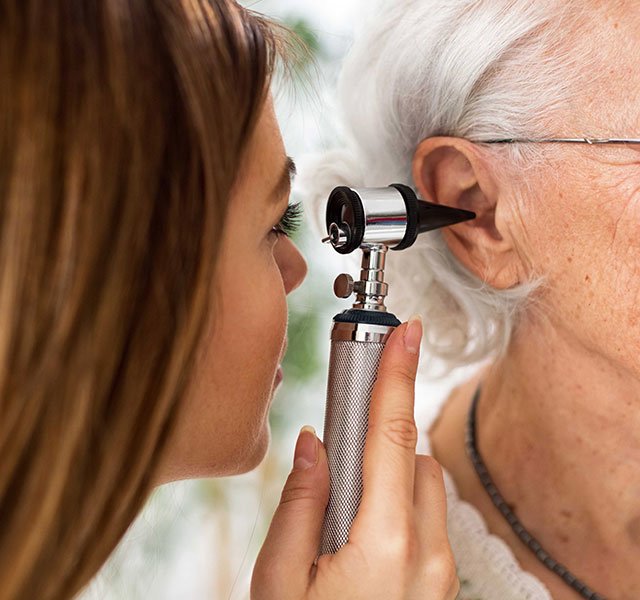
She started reading lips, and she had an interpreter at church, in college, and at work. In 2005, she started experiencing slight but frequent dizziness, so her parents decided to consult an ENT specialist again. She went to many, but nothing worked. 10 years passed without any result.
She started wearing a hearing aid in March, just before her graduation in 2016. In September same year, she got second aid for the other ear. By the time she was 25, the situation became even more serious as Carolyn started experiencing complete hearing loss.
Once Carolyn’s mother Beth was talking with one of her friends who told her about cochlear implant surgery, bath started researching the procedure and learned that India is the most cost-effective country with high-quality medical services. During her research, she also came to know about MedicoExperts.
Bath decided to come to India with Carolyn for cochlear implant surgery and the MedicoExperts team helped her every step of the way. Once they reached India, the doctors ran physical and psychological tests to determine if she was suitable for the implant.
Once her suitability was determined, the doctors started the procedure.
Initially, she could not hear clearly, but soon she heard beeping noises. Carolyn started to regain her hearing slowly.
Not only Carolyn, but many others like her have regained their hearing ability after undergoing cochlear transplants and you can be one of them. You only need to take the right step at the right time.
Now, let’s understand Cochlear implant surgery better.
The outer ear channels sound around us to the eardrum.
Outer ear is made up of:
– the part we see on the sides of our heads known as the pinna
– the ear canals
The middle ear is where the sound is transformed from pressure waves to mechanical energy.
Middle ear is composed of:
– the eardrum (tympanic membrane) is made up of layers of skin.
– attached to the eardrum are three tiny bones called Hammer (malleus), Anvil (Incus), Stirrup (Stapes) that send out the vibration of the eardrum to hydraulic waves in the internal ear.
The inner ear is where nerves collect sound for delivery to the brain.
The inner ear is composed of:
– the snail-shaped organ for hearing known as the cochlea
– the semicircular canals that help with balance
– the auditory nerves that most likely go to the brain
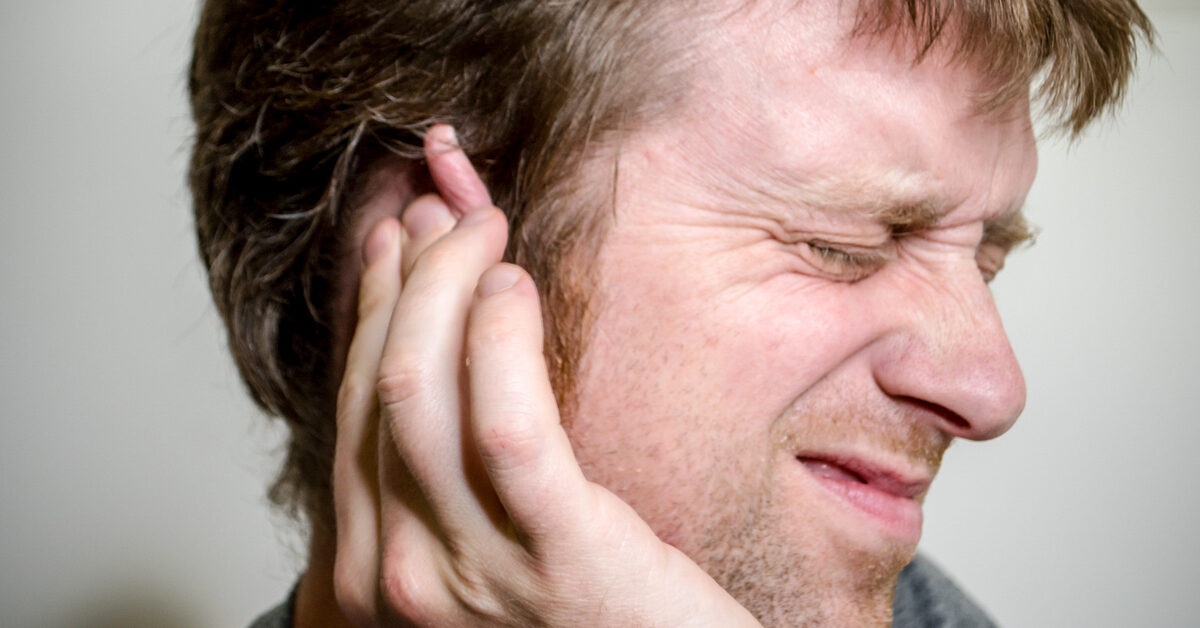
Ageing and exposure to loud noises can contribute to hearing loss. Apart from that, excessive ear wax can temporarily reduce the sounds received by the ears. The presence of fluid in the eardrum otitis media can also cause temporary hearing loss, which reduces movement of the eardrum and tiny bones in the middle ear. Hearing loss can be treated in consultation with your doctor, and that is when cochlear implant surgery is done if it is suitable for you. So, let’s understand what it is.
A cochlear implant is a small electronic device that helps improve hearing in people who are suffering from severe hearing loss. The implantation consists of an external portion that sits behind the ear and an internal portion that is positioned under the skin. The surgery may take 1-2 hours.
The implant has the following parts:
- A microphone captures environmental sounds, and a speech processor selects and prepares these sounds.
- Signals from the speech processor are transmitted to a transmitter and receiver, where they are converted into electrical impulses.
- These impulses are then accumulated by an electrode array, a set of electrodes that directs them to various regions of the auditory nerve. T
- The external component of the device uses a microphone to capture sounds, process them, and transmit the processed sound to the internal part of the implant.
- A thin wire and electrodes in the internal part lead to the cochlea, a component of the inner ear. This wire sends signals to the cochlear nerve, which, in turn, relays sound information to the brain for the perception of hearing.
It is important to note that a cochlear implant does not restore normal hearing but provides a valuable representation of environmental sounds, aiding in speech comprehension for individuals with hearing impairment.
This makes it different from hearing aids, which amplify sounds but may not necessarily increase speech understanding. And that is why those facing challenges in understanding speech should consider cochlear implants.
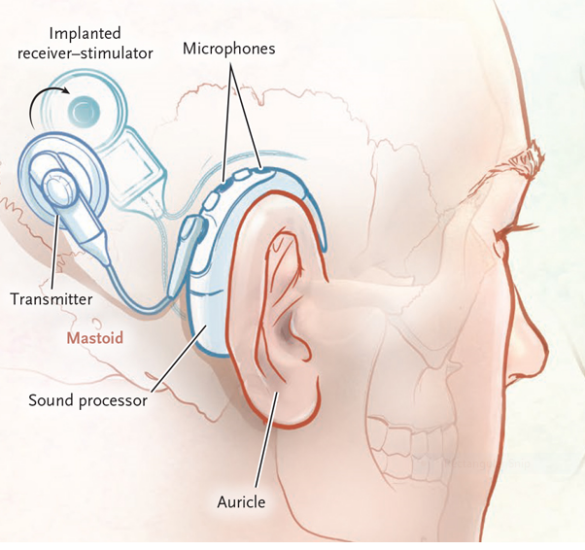
You will require an in-depth medical examination to determine if cochlear implants are a good option.
A doctor will indeed conduct an assessment that might include:
- Ordering examinations of hearing, speech, and sometimes balance
- Executing a checkup to assess your inner ear’s health
- Getting MRI or CT imaging examinations of the head to analyze the condition of the cochlea and internal ear structure
- Getting psychological health and wellness (emotional) testing in select situations to determine your capability to find out to utilize cochlear implants
- Your surgeon will then produce a tiny opening in the cochlea to thread the electrode of the inner tool.
- Your surgeon will cut (incision) behind your ear and develop a tiny hole in the part of the head bone (mastoid) where the internal device rests.
The skin incision is stitched to make sure that the inner gadget is under your skin.
You could experience:
- Stress or pain over the implanted ear or ears
- Dizziness or nausea
Most people feel well enough to return home the day of surgery or the following day.
An audiologist will not switch on (trigger) the cochlear implants for two to 6 weeks after your surgical treatment– to offer the surgical procedure time to recover.
To activate the cochlear implantation, an audiologist will:
– Change the sound processor to fit you
– Inspect the elements of the cochlear implantation to make sure they function
– Establish what seems you or your child hears
– Give you info on the appropriate treatment and use of the tool
– Set the device so that you can hear to the best of your capacity
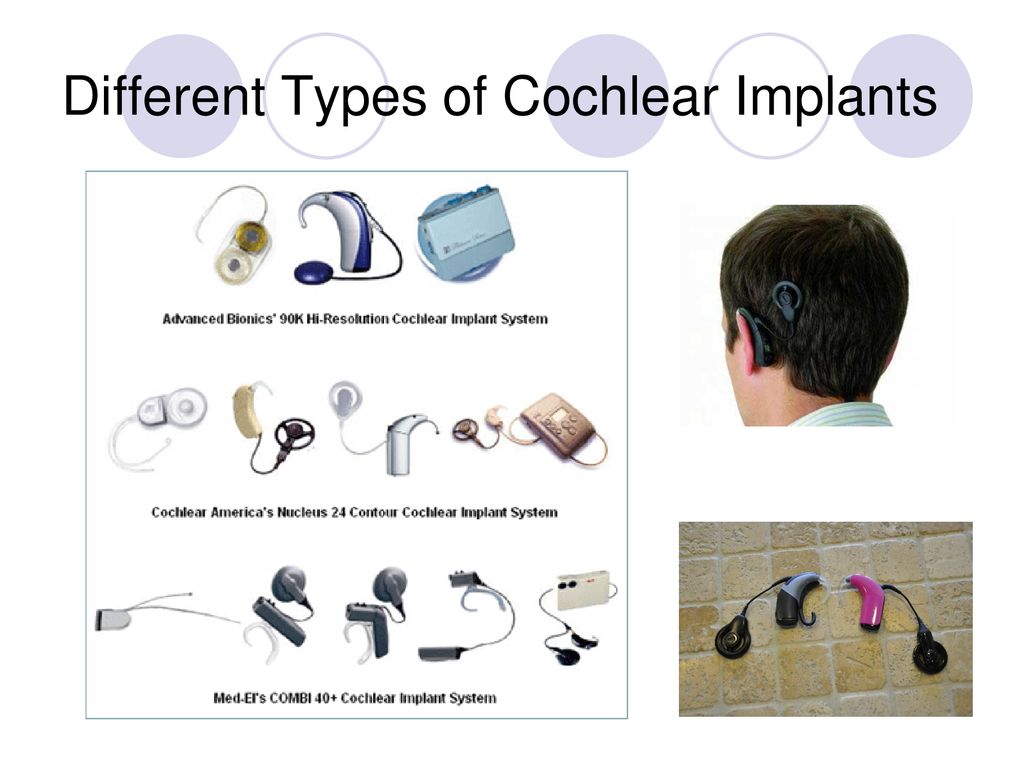
Cochlear implants come in different types based on where the outside sound gadget is put. This sound gadget, called the external processor, can be:
- Clipped onto your clothes.
- Behind your ear.
- On top of your head.
The most common form of cochlear implants only provides electric stimulation to the hearing nerve. The second most typical cochlear implantation is called Hybrid Implants or Electro-Acoustic Stimulation (EAS) Implants.
These hybrid implants have an added hearing aid component that provides sound amplification for low-frequency sounds. These hybrid implants are indicated to aid those with partial deafness, where the deafness affects mainly high-frequency sounds.
There are variants to the dimension and style of both the internal and external elements. One of the most visible sections of a cochlear implant system is the external speech processor, and they are available in two significant designs. One of the most common is a behind-the-ear (BTE) or On-the-Ear speech processor worn on the ear.
This wire links to a magnet that sticks to the scalp where the implanted magnet is. The other kind is an off-the-Ear speech processor, where the processor is incorporated totally into the magnet.
Cochlear implants can bring back hearing in individuals with severe hearing loss who are assisted by hearing aids. Cochlear implants can boost their interaction as well as their quality of life.
Cochlear implants might be positioned in one ear (unilateral) or both ears (bilateral). Cochlear implants in both ears have begun to be utilized regularly to treat common severe hearing loss– specifically for infants and kids learning to speak and refine the language. Adults and children who are as young as 6 to twelve months old can benefit from cochlear implants.
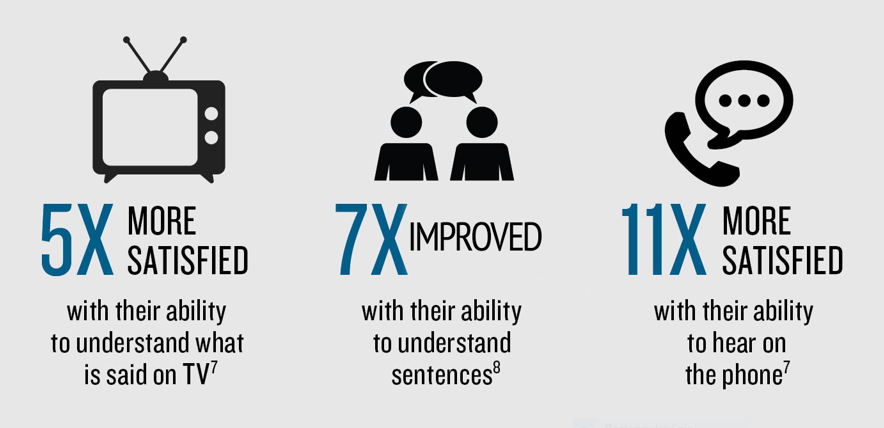
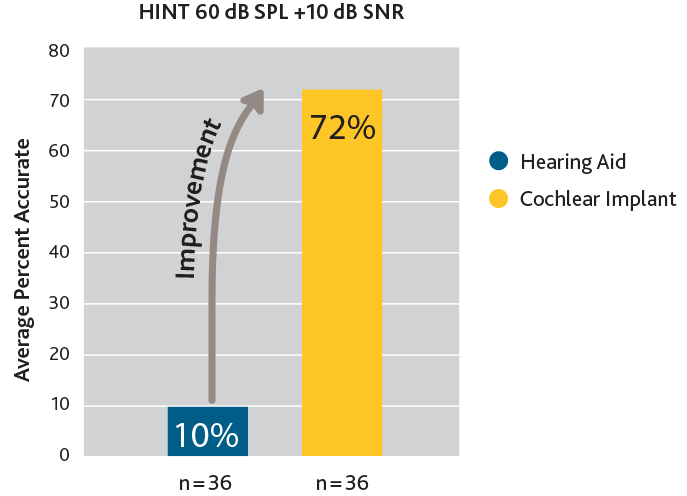
Individuals who have cochlear implants report enhanced:
- Capability to listen to speech without requiring visual signs such as reviewing lips
- Acknowledgment of regular, daily environmental sounds
- Capacity to listen in a loud environment
- Ability to find where sounds originate from
- Capability to listen to TV programs, songs, and telephone conversations
To be qualified for a cochlear implant, you should have:
- Hearing loss that is so severe that it disturbs spoken interaction
- Limited gain from hearing aids as determined by specialized hearing tests
- No medical problems or factors that increase the dangers related to cochlear implants
Why choose India for cochlear implantation?
India has around 200 modern cochlear implant facilities throughout the country. The country has a pool of talented professionals and well-equipped habilitation systems to take care of people with hearing impairment.
The best part is undergoing the procedure in India will not burn a hole in your pocket.
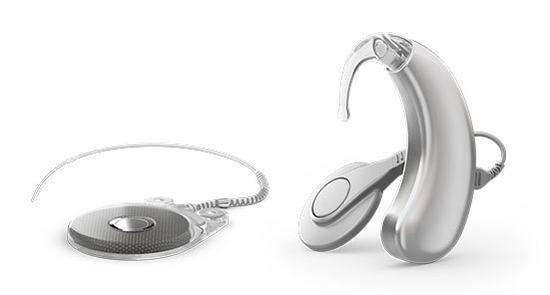
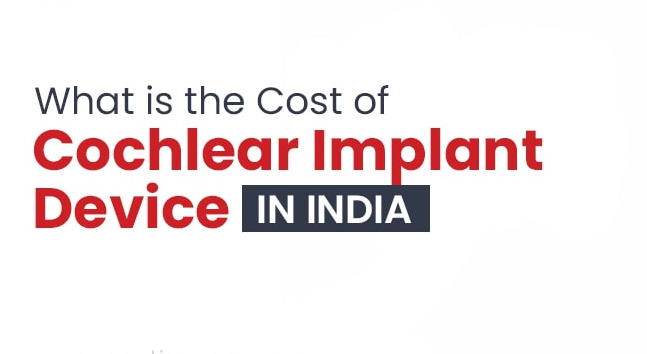
Without insurance, a cochlear implant cost in India can range between $1500 (1,24,319.33 INR) – $12,500 (10,35,994.38) on average. Most insurance coverage providers this implant or a portion of it. You will get insurance from Medicare, Medicaid, and Veterans Affairs for the device also.
You may need to change components like microphones and magnets of the device from time to time. Additionally, you may require repair work. Some insurance policies cover these expenses, too. It is better if you consult your insurance company to know what’s covered and what’s not before the procedure.
What is the success rate of cochlear implantation?
Cochlear implants have a high success rate, as less than 0.2% of receivers decline them. Cochlear implant customers’ performances have continued to increase for several years. Adults typically benefit right away after the placement of the implantation. The high sound quality continues to boost for about three months after the preliminary tuning sessions.
Conclusion
The results of cochlear implantation vary from person to person. The outcome of cochlear implantation depends on the age when hearing is lost and the type of cochlear implant surgery. The best results for children occur when getting implantation at a younger age. The best results for adults can be seen with a shorter period of hearing loss before implantation.
Frequently Asked Questions and patient concerns:
Q1. Is cochlear implantation a major surgery?
It is considered a minimally invasive surgery where an electronic device can partially restore hearing.
Q2. What are the risks involved in cochlear implant surgery?
Cochlear implant surgery is usually safe, but there might be some risks such as inflammation of the brain and spinal cord membranes after the surgery. At times, the device might fail, and surgery might be needed to repair the device. There might be some rare complications, which include bleeding, infection, and dizziness.
Q3. How long do cochlear implants last?
The surgically implanted device will last for a lifetime, but there can be chances of equipment failure which needs to be replaced.
Q4. Can you normally hear with a cochlear implant?
It allows deaf people to receive and process sound, but it does not restore normal hearing.
Q5. What is the best age to get a cochlear implant?
Children from 10-12 months of age can receive cochlear implants; the earlier, the better.
Q6. Does insurance cover cochlear implants?
90% of all commercial health plans cover cochlear implants. Cochlear implant centres usually take the responsibility of obtaining prior approval from the appropriate insurance companies before surgery.
Q7. Can the sound processor be removed at night?
Yes, it is recommended to turn it off to save the battery.
Q8. Can people with implants swim, shower, and participate in sports?
Yes, people with implants can swim, shower, and participate by removing the external equipment.
Q9. Will the child outgrow the internal device and require a new device?
No, the cochlea is fully formed at birth, and the skull structure achieves full growth by 2.
Best hospitals For Cochlear Implant Surgery in India
Get treated at state-of-the-art Multi-speciality hospitals in India which are JCI, NABH accredited, and have advanced technologies with best-on-ground staff for comprehensive care.

MedicoExperts is a Global virtual hospital which is established to offer quality healthcare services at affordable pricing without compromising the success rates of the treatment.
MedicoExperts is having a network of highly experienced super specialist doctors and well equipped hospitals across the globe and offering second opinion through online video consultation and surgical interventions through its empanelled super specialist doctors at its network hospitals in 17 countries from 3 continents.
By the virtue of its approach and model, MedicoExperts is successfully achieve to deliver
- Latest and most advanced treatments with success rates of international benchmarks.
- Multiple cost options depending upon the hospital facilities, with the same doctor.
- Treatment option in multiple cities/state/countries.
- Trust and peace of mind.
Most suitable for patients who are looking for:-
- Planned Surgeries and treatment from most experienced doctors and at multiple cost options as per hospital facilities with best possible outcomes.
- Second Opinion from expert doctors.
- Complex cases involving multi specialities
- International patients looking for treatment from Indian doctors

Author Bio:
Dr. Ashita Nandgaonkar – BHMS, MS in psychological counseling
Dr. Ashita Nandgaonkar is a highly esteemed homeopathic doctor with a passion for holistic healing and patient-centered care. Dr. Nandgaonkar remains dedicated to raising awareness about the benefits of homeopathy and promoting its integration into mainstream healthcare. Her mission is to empower individuals on their journey to health and wellness, embracing the holistic approach that homeopathy offers. She has a special interest in researching Homeopathic solutions for diseases that are difficult to treat with conventional medicines and therapies.
Content Medically Reviewed By MedicoExperts Editorial & Clinically Review Board





